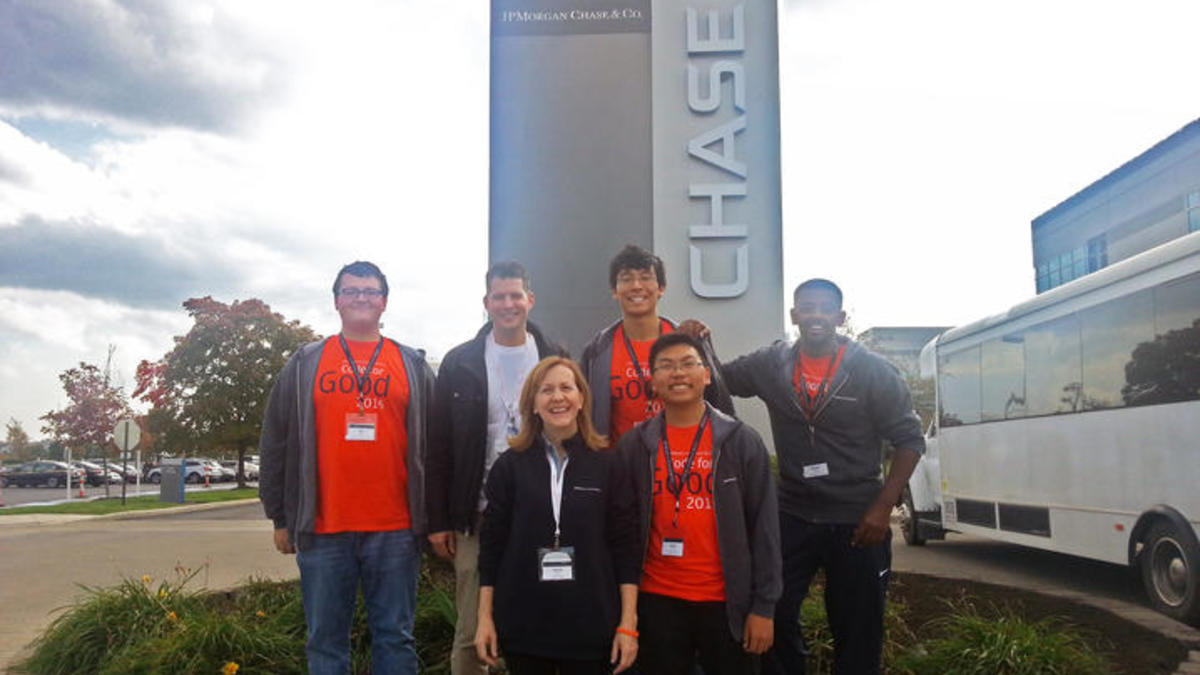LEXINGTON, Ky. (Feb. 24, 2017) — University of Kentucky students devote more than 100,000 hours to service each year. Some students bust out their dance moves #FTK and some deliver meals through the UK Campus Kitchen. UK engineering students are making a difference in their own way — developing software and apps that help people do good.
“With technology evolving at such a fast pace, the world needs people willing to work to keep charities and nonprofits technically relevant, and it especially needs a strong generation of cyber security experts to stay in the field and do some good in the world,” said Bill Miller, a computer engineering junior from Granger, Indiana.
Miller speaks from experience. He and Genghis Goodman, an economics and computer science sophomore in the Scholars in Engineering and Management program from Lexington, recently won first place in JPMorgan Chase & Co.’s Code For Good hackathon in Columbus, Ohio.
The event gives students across the nation a chance to develop innovative technology solutions for nonprofit organizations and learn from expert instruction. Around 20 teams competed, developing solutions for the nonprofits Feeding America, Susan G. Komen and Choices.
The UK pair, along with two other teammates from the University of Maryland and Ohio State, were intrigued by the challenge Feeding America posed. The organization is the nation’s largest domestic hunger-relief organization with a network of 200 food banks and 60,000 food pantries and meal programs across the nation.
Feeding America asked teams to increase use of its fundraising programs and inform people of hunger issues and statistics in America. Teams were tasked with doing this while keeping users in a “gameified” experience. In only 24 hours, Miller and his team developed an innovative app and their concept of “The Grain.”
“We decided to go with an app due to ease of access for end users, aesthetic appeal and our team’s skill set,” Miller said.
The app incentivizes people to learn about hunger and buy certain products where a percentage of the sale would go to Feeding America. App users grow grains of stalk based on their activities — reading articles or watching informative videos, sharing on social media, completing a daily hunger quiz, donating directly, and contributing donations through certain products purchased at the store.
The team also included a large competitive aspect to achieve that game-like experience. Users can compete with other schools and cities, see world/radius-based statistics and define their own competitions.
After three rounds of judging — which included presenting to a panel of JPMorgan Chase & Co. developers and representatives from all three nonprofits — the UK pair and their team were selected as first place winners. They each took away an iPad Air 2, a rewarding experience and new connections.
JPMorgan Chase employees will now work to expand or complete the app for the organization, Miller said. Someday, the UK students’ work may be on the App Store, helping Feeding America continue its impact on more than 46 million people each year.
“As the ideas and implementation progressed, it became more and more apparent that the app could potentially hit the market, and from there actually have a real-world impact,” Miller said. “It feels pretty great to know that several of the underlying ideas and structures that we laid out will likely make it into the real thing.”
This article was originally posted on UKNow; to see the original article, click here
